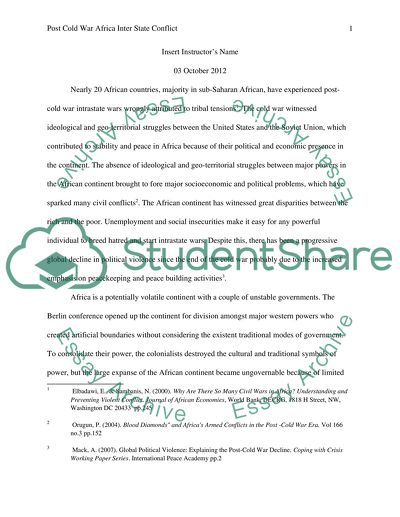Cite this document
(“Post Cold War Africa Inter State Conflict Research Paper”, n.d.)
Post Cold War Africa Inter State Conflict Research Paper. Retrieved from https://studentshare.org/history/1458003-post-cold-war-africa-inter-state-conflict
Post Cold War Africa Inter State Conflict Research Paper. Retrieved from https://studentshare.org/history/1458003-post-cold-war-africa-inter-state-conflict
(Post Cold War Africa Inter State Conflict Research Paper)
Post Cold War Africa Inter State Conflict Research Paper. https://studentshare.org/history/1458003-post-cold-war-africa-inter-state-conflict.
Post Cold War Africa Inter State Conflict Research Paper. https://studentshare.org/history/1458003-post-cold-war-africa-inter-state-conflict.
“Post Cold War Africa Inter State Conflict Research Paper”, n.d. https://studentshare.org/history/1458003-post-cold-war-africa-inter-state-conflict.


